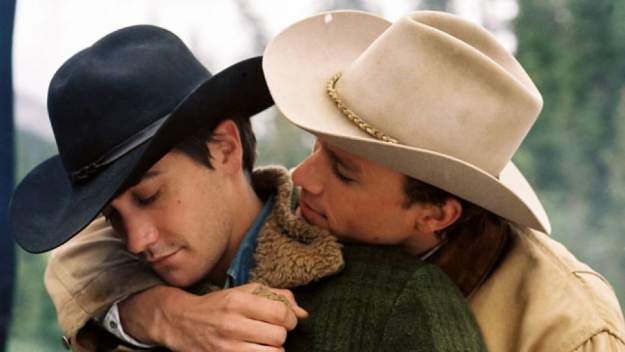
According to a Cornell psychology professor, a growing number of men are eschewing traditional sexual orientation labels for more fluid terminology like, “mostly straight.”
Ritch C. Savin-Williams discusses the subject in his book, Mostly Straight: Sexual Fluidity Among Men.
In a new article for TIME, he writes:
“If you’re a young man, you might assume that either you’re straight or you’re not, meaning you’re likely gay and maybe bisexual. Yet the evidence suggests that more young men identify or describe themselves as mostly straight than identify as either bisexual or gay combined.”
A 2011–2013 U.S. government poll found that 6% of 18- to 24-year-old men, identified as being attracted to “mostly opposite sex.” That 6% amounted to nearly one million men.
But as Savin-Williams suggests, when those men were forced to identify as either straight, gay or bisexual, three-fourths of them marked straight, since, bisexual, and even “bisexual-leaning straight,” was “too gay” to sound accurate.
The author then explains that while same-sex attraction accounts for a small percentage, between 5-10% of his sexual and romantic feelings, there aren’t any rigid rules as to what a mostly straight man will be into.
“These attractions are sexual, romantic or both and can be expressed in various ways, from erotic fantasies to actual behavior. Perhaps he’s made out or he wants to make out with a guy friend. He’s participated in all-male group masturbation or is willing to receive oral sex from an attractive guy he’s just met. But it’s unlikely that he has had penetrative sex with a guy, though he might be willing to if the right guy or circumstance appeared. He might have had an intense guy crush. But to fall passionately in love with a guy is too much, though he might have quite strong feelings and cuddle with a best friend.”
The author also suggests that the advent of the “mostly straight” man is perhaps linked with relaxed millennial attitudes toward sexuality.
Citing a 2015 survey, he explains that a majority of millennials indicated that they believe sexuality is a spectrum, versus a “straight, not straight” identity.
Head to TIME for more…







